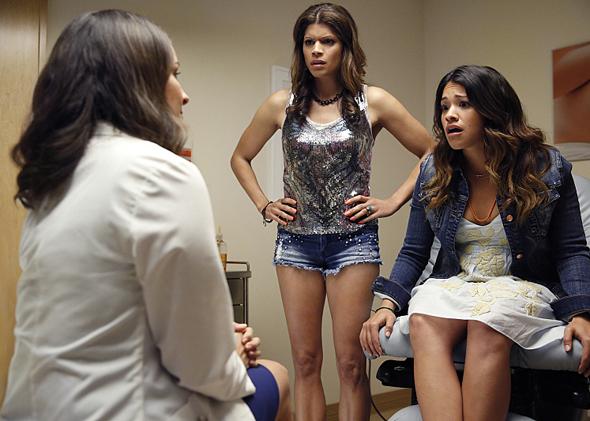When The WB and UPN folded themselves into one network, the CW, in 2006, it was a kind of capitulation, an admission that despite a decade of trying, neither fledgling network had succeeded in becoming a major one. Why did the two mini-networks fail to grow like Fox had a decade prior? It wasn’t because of me. I spent the 11 years of its existence being the WB’s target audience.
The WB—and, by the end of its run, UPN as well—made soap operas starring attractive actors pretending to be in high school or college, a format before which I was as helpless as a toddler in front of any moving images at all. Buffy, Felicity, Dawson’s Creek, Everwood, Roswell, Veronica Mars: I watched them all, plus the less-memorable Jack And Jill, Popular, and Savannah. If it was a drama on the WB, chances are I loved it. Around the time that the WB became the CW and Gossip Girl premiered, I remember wondering if I would ever outgrow these kinds of shows or if I would be powerless before earnestly made series about the love lives of faux-teenagers forever.
Like they almost say, be careful what you wonder about. Because soon thereafter, I got over the CW. Whether it was my age, the quality of the latest faux-teen soaps, or both, the network went from being a regular part of my TV diet to no part at all. I couldn’t stand Smallville or the reboot of Beverly Hills: 90210, both repulsively sincere in their own distinct ways. The Vampire Diaries, the network’s biggest hit, and the never-ending Supernatural also left me cold. The shows I liked—Life Unexpected, Privileged, The Carrie Diaries, The L.A. Complex—invariably got canceled. By last season, when the network had almost fully transitioned away from shows about unusually angsty young adults to shows about unusually angsty young adults with supernatural powers, I had long since started getting my fix of teenage drama on ABC Family.
But just when I was feeling confident I could dismiss the CW entirely, along comes the beguiling Jane the Virgin, which premieres Monday night, and is the best reason to watch the CW in many, many years. Like a sweeter Ugly Betty, Jane the Virgin is a telenovela, but one with a sense of irony and wit, simultaneously winking at and embracing its own format. It is easily the most charming new TV series of the fall, a highly stylized, big-hearted, zippy Technicolor dramedy that is also, uncloyingly, another example of network TV’s growing—at least for the moment—diversity.
The show is narrated, a la Pushing Daisies, by a knowing, omniscient man with a dry sense of humor and a plummy Spanish accent. (“There’s not a story,” one character tells another. “OK, here’s the story,” the narrator jumps in.) He relates the tale of Jane Gloriana Villanueva (Gina Rodriguez, charismatic and grounded), a hard-working, 23-year-old virgin who is studying to be a teacher, working at a hotel, dating an adorable-seeming cop, and cohabitating with her mother and grandmother. Her abuela, Alba (Ivonne Coll), is very Christian; her mom, Xiomara (Andrea Navedo), had Jane when she was only 16. One day, while at the doctor for a routine pap smear, Jane is accidentally inseminated and impregnated by the sperm of Rafael Solano (Justin Baldoni)—a once caddish playboy chastened by cancer and unhappily married to the conniving Petra (Yael Grobglas). In telenovelas, coincidences are like oxygen; not only does Jane work at the hotel Rafael owns, the two have met once years ago, when they shared a soulful kiss. Also, Rafael’s best friend is being investigated by Jane’s cop boyfriend Michael (Brett Dier); Rafael’s doctor sister is the one who mistakenly inseminates Jane; and Jane’s paternity may have something to do with the telenovela—The Passions of Santos—that she and her family watch so faithfully.
Now impregnated—“Immaculada!” Xiomara proclaims when the doctors tell Jane she’s with child—Jane has to decide what to do. Jane the Virgin has a light touch, but it also has a big brain thrumming beneath the playfulness. For now, the plot mechanics mandate that Jane keep the baby, but the series doesn’t simplify Jane’s predicament, respectfully laying out her options. “I know my mom loves me, but I also know in some ways I derailed her life. I don’t want my kid to feel that way, ever. I want to be ready,” Jane tells Rafael, explaining why she doesn’t want the baby. Later, Xiomara tells Jane, “I just want you to know you have a choice. Because having one helps, I think.” If all the circumstances around Jane are larger than life, she and the people close to her feel real.
Part of her realness is that she comes from a concrete and specific place: a Latino family living in Miami. Almost all the major characters in the show are Latino. Xiomara is a singer who performs in Spanish. The first lines of the show not spoken by the narrator are also in Spanish, because that’s the only language in which Jane’s grandmother speaks to her. The show casually uses subtitles, both for Alba and for The Passions of Santos, because the show, like its characters, is—no fuss, no muss—bilingual. Like Scandal and American Horror Story, Jane the Virgin is not praying at the altar of typical prestige television, but instead, updating the wrongfully maligned melodrama in delightful, provocative, culturally specific ways. It’s not self-serious, but it is serious—about being more entertaining, more emotional, more garish, and more gonzo than so much on television.
